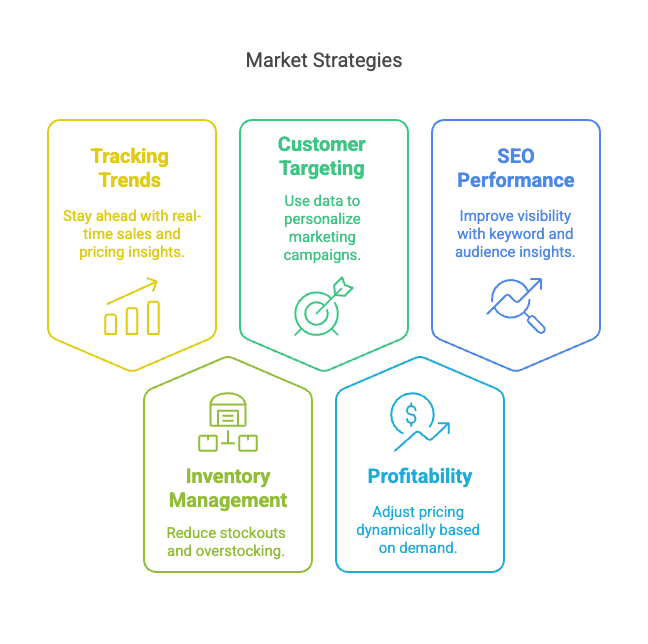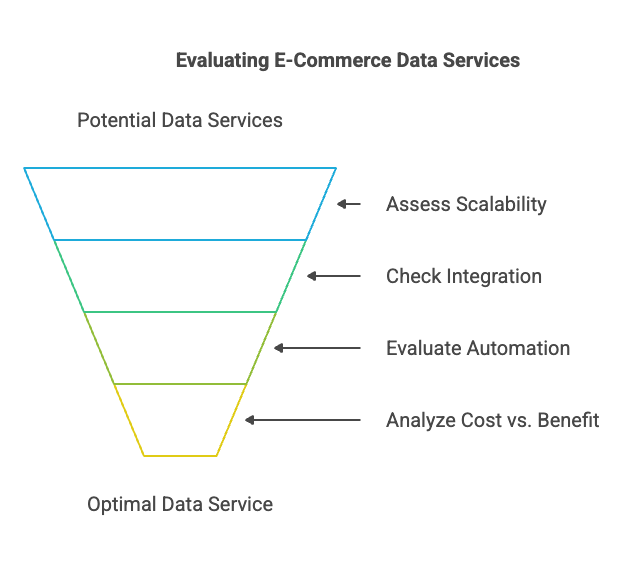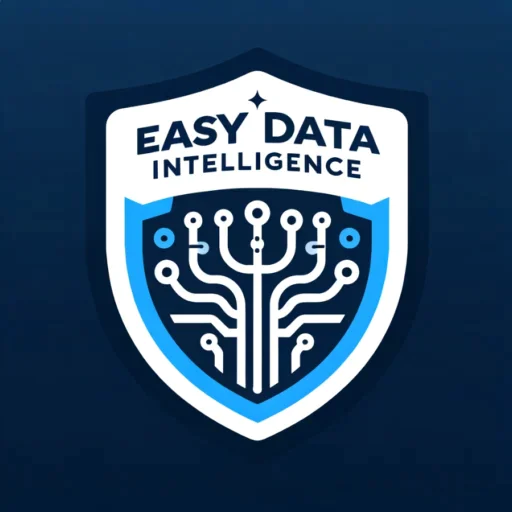Introduction
In the fast-paced world of online retail, leveraging e-commerce data services is crucial for success. From price monitoring and competitor analysis to customer insights and automated reporting, businesses rely on data-driven strategies to maximize sales and optimize operations.
This guide covers the best e-commerce data services for businesses looking to scale in 2025, highlighting the tools and platforms that help sellers gain a competitive edge.
- Introduction
- Why E-Commerce Businesses Need Data Services
- Best E-Commerce Data Services for 2025
- Choosing the Right E-Commerce Data Service
- Conclusion
Why E-Commerce Businesses Need Data Services
The online marketplace is highly competitive, making e-commerce data services essential for:
- Tracking Market Trends: Stay ahead with real-time sales and pricing insights.
- Optimizing Inventory Management: Reduce stockouts and overstocking.
- Enhancing Customer Targeting: Use data to personalize marketing campaigns.
- Increasing Profitability: Adjust pricing dynamically based on demand.
- Boosting SEO & Advertising Performance: Improve visibility with keyword and audience insights.

Best E-Commerce Data Services for 2025
1. Market Research and Competitor Intelligence
Understanding your competition is vital for business growth. These services provide deep market insights:
SimilarWeb
- Analyzes traffic sources for e-commerce websites.
- Tracks competitor website performance and audience demographics.
Jungle Scout
- Provides product research and market analytics.
- Helps sellers identify high-demand, low-competition products.
2. Sales and Performance Analytics
Analyzing sales data helps businesses make informed decisions and maximize revenue.
Google Analytics for E-Commerce
- Tracks online store performance and customer behavior.
- Measures conversion rates and ad campaign effectiveness.
Easy Data Analytics
- Monitors e-commerce trends and pricing changes.
- Provides competitor benchmarking and sales forecasts.
3. Price Optimization and Dynamic Pricing
Using data-driven pricing strategies can significantly improve profit margins.
Prisync
- Tracks competitor pricing in real time.
- Enables dynamic pricing adjustments.
RepricerExpress
- Automates price adjustments based on sales trends.
- Optimizes product listings on marketplaces.
🔗 See RepricerExpress Features
4. Inventory and Supply Chain Management
Effective inventory management prevents lost sales and excess stock.
TradeGecko (QuickBooks Commerce)
- Automates inventory and order management.
- Syncs stock across multiple sales channels.
Skubana
- Provides real-time inventory insights.
- Integrates with warehouses and fulfillment centers.
5. Customer Data and Personalization
Personalized shopping experiences increase customer retention and conversion rates.
Segment
- Collects and organizes customer data for marketing campaigns.
- Helps businesses create targeted audience segments.
Klaviyo
- Automates personalized email and SMS marketing.
- Tracks customer purchase behavior and engagement.
6. Advertising and SEO Data Services
Maximizing online visibility requires strategic data use.
SEMRush for E-Commerce
- Provides keyword research and competitor analysis.
- Tracks paid ad performance and organic rankings.
Facebook Pixel & Google Ads Manager
- Analyzes customer journeys for optimized ad targeting.
- Increases return on investment (ROI) for paid campaigns.
Choosing the Right E-Commerce Data Service
When selecting a data service for e-commerce, consider:
- Scalability: Can it support your business as it grows?
- Integration: Does it connect with your current platforms?
- Automation: Does it reduce manual workload?
- Cost vs. Benefit: Is it worth the investment?

Conclusion
Leveraging e-commerce data services is no longer optional—it’s a necessity for businesses looking to thrive in 2025. Whether you need insights on pricing, sales trends, inventory, or customer behavior, data-driven decisions will help you scale effectively.
For advanced analytics and data solutions, visit Easy Data.


Leave a Reply